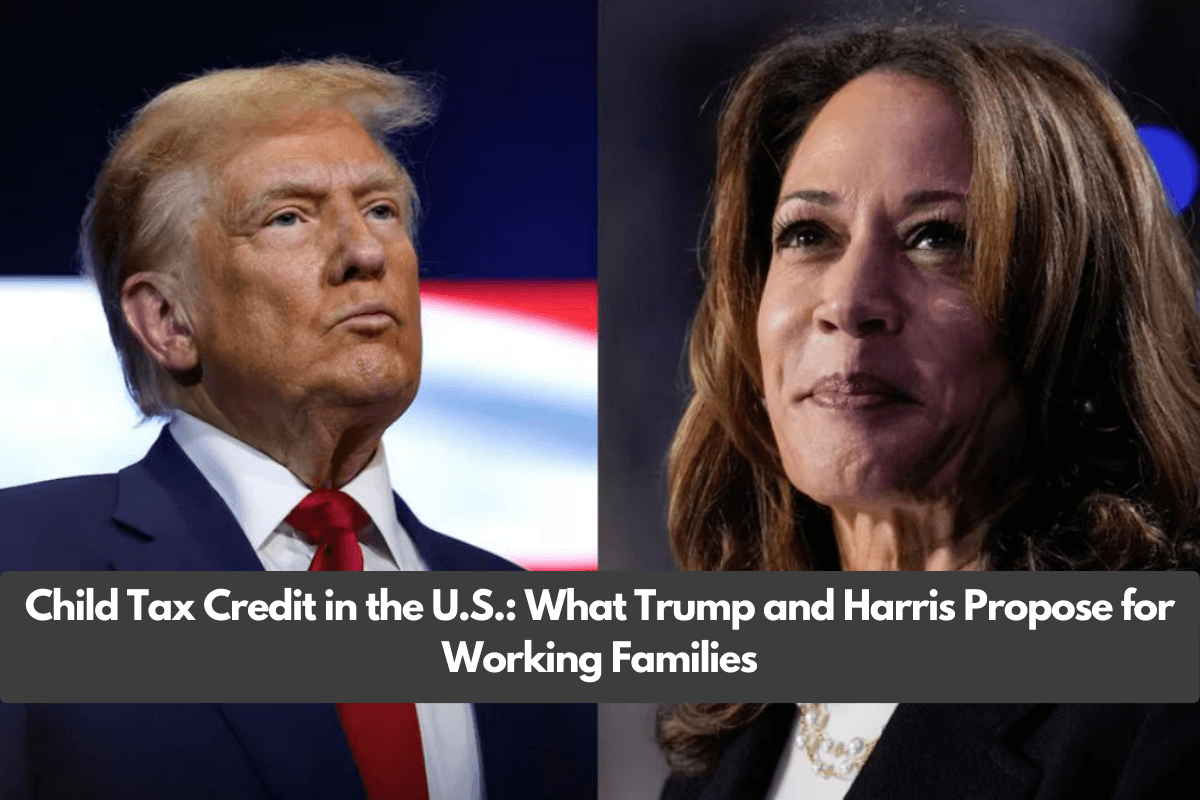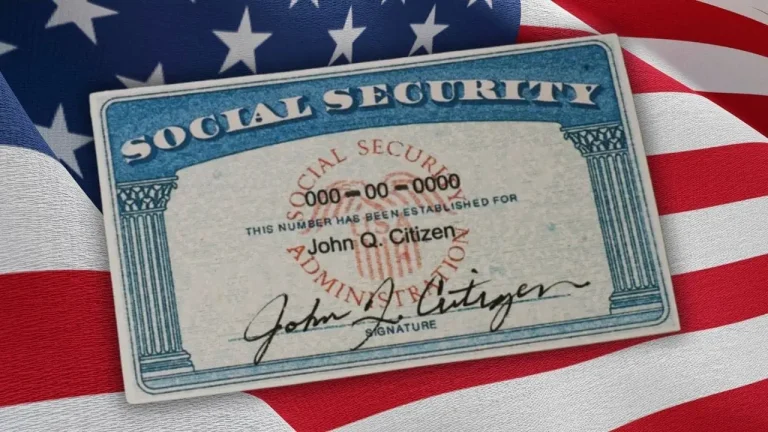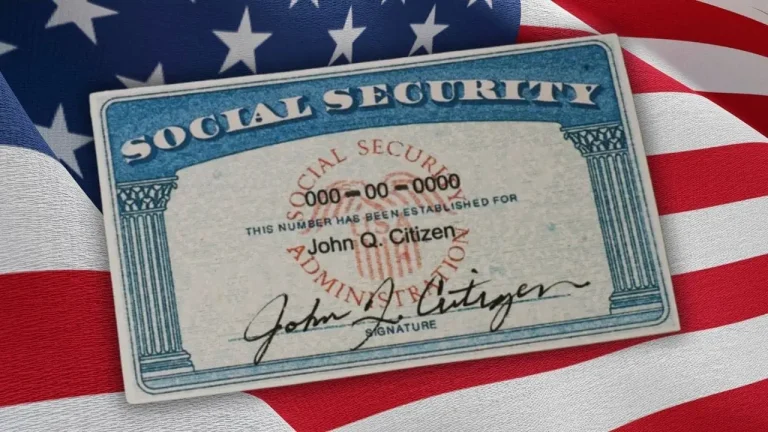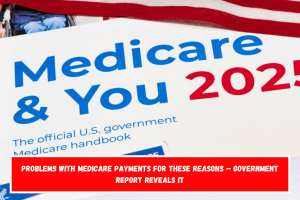The Child Tax Credit has been very helpful for many families in the US, especially in the last few years when the economy has been bad. With the election coming up, both the Republican Party, led by Donald Trump, and the Democratic Party, led by Kamala Harris, have talked about how they would like this tax benefit to work.
What are the differences between their plans, and what might they mean for middle-class and working-class families?
Families with young children can get some economic relief from the Child Tax Credit, which lowers their taxes or, in some cases, gives them a refund. During the COVID-19 pandemic, this credit was very important for millions of families who were having trouble paying their bills.
Because of the economic crisis, the government raised the credit to $3,600 for each child younger than six years old and $3,000 for children ages six to seventeen. This made it fully refundable and open to families who did not have to file taxes.
Why is the Child Tax Credit so important?
This change set a standard that put the Child Tax Credit at the top of discussions about family welfare. There is no doubt that both Trump and Harris are interested in either keeping or expanding the Child Tax Credit because they know how important it is for family health. Going forward, we will look at what each candidate has to say and how their ideas might help or hurt different groups of people.
Kamala Harris’ proposal on the Child Tax Credit
Kamala Harris has always stood up for working families and people in the middle class as a leading Democrat. One of the most important parts of her platform is to increase the child tax credit so that families can keep more of their money. Harris also wants to make the Earned Income Tax Credit (EITC) stronger so that more families can get these financial aids.
Harris’s specific plan for the Child Tax Credit gives families with new babies an extra $6,000. The Committee for a Responsible Federal Budget says that this project could cost up to $1.2 trillion over the next ten years. Harris’s plan also keeps the higher amounts from the pandemic years, $3,600 for kids younger than six and $3,000 for kids between six and seventeen.
Harris wants to make it possible for more middle-class families to use the child tax credit. This will create a safety net to help families deal with rising prices and inflation in the US. Her plan focuses on helping families who may be struggling with rising costs and want a safety net against financial stress.
Donald Trump’s vision for the Child Tax Credit
On the Republican side, Donald Trump also wants to extend the Child Tax Credit, but he is going about it in a very different way than Harris. His campaign team wants the credit to be higher, with amounts going up to $5,000 per child. In an interview, Trump’s running mate JD Vance said that they want all American families, regardless of income, to be able to get the child tax credit.
Trump’s plan, in contrast to Harris’s, could get rid of the income limits that keep some families from getting the Child Tax Credit.
Today, people who file as single and make more than $200,000 a year or married couples who make more than $400,000 a year will no longer be able to get the credit. By getting rid of these limits, Trump’s plan would let families from all walks of life get the full credit, which makes people wonder if it will work in the long run.
Key differences between the two proposals
The main difference between Harris’s and Trump’s plans is how they would help working and middle-class families and how they would structure income. The Democratic plan focuses on giving more help to middle- and low-income families. The Republican plan, on the other hand, wants to give the credit to all families, no matter how much money they make.
Harris’s plan puts aid programs like the Earned Income Tax Credit that help families in the most need at the top of the list. Trump, on the other hand, wants to expand the child tax credit so that it can be used by everyone, regardless of their income.
This difference shows two different political views on the government’s role in giving tax breaks: one that focuses on helping families with lower incomes and another that aims to help people of all incomes.
How will these proposals affect families in the U.S.?
Both plans aim to help families with kids pay less in taxes, but they have different effects. Middle- and low-income families would benefit the most from Harris’s plan because it would give them a lot more money to spend thanks to refundable credits and extra tax breaks. Trump’s plan, on the other hand, would give all families a higher Child Tax Credit, which could also help families with higher incomes.
Ultimately, the outcome of both proposals will depend on how they are carried out and the priorities of the next government. For now, both Trump and Harris know that the Child Tax Credit is a very important issue for voters, and their plans show how much they care about American families.
Harris’s plan seems to be geared toward helping families who are more likely to be hurt by changes in the economy. Focusing on strengthening the EITC shows that she wants to make these benefits easier for low- and middle-income families to get. The extra credit for newborns shows that the government is aware of the higher costs parents face when they have a new child.
But Trump’s plan to make the credit available to everyone, regardless of income, is a more general approach that fits with Republican ideas about keeping the government out of people’s lives as much as possible.
A wider range of families, including those with higher incomes, would be able to get the credit with this universal application. This way of thinking supports more fair access to tax relief, so that all families with children can benefit, no matter how much money they have.
But making the credit available to families with all kinds of incomes might raise questions about how to pay for it and whether it will last. If there are no limits on income, it might be hard for the government to keep up with such a program over time, especially if the economy goes down.
Even with these worries, Trump’s plan is liked by families who believe that tax cuts should be available to everyone, not just people with low incomes.
When it comes to the economy as a whole, the child tax credit is both an immediate financial help and an investment in the next generation. Families who get this help can better afford things like food, housing, and medical care, which makes society healthier and more stable.
Especially for middle- and low-income families, who often put the money back into the local economy. This helps businesses and communities by creating a “multiplier effect.”
Read Also :- SSI update: No payment on December 1, here’s the new payday Social Security set
Note: Thank you for visiting our website! We strive to keep you informed with the latest updates based on expected timelines, although please note that we are not affiliated with any official bodies. Our team is committed to ensuring accuracy and transparency in our reporting, verifying all information before publication. We aim to bring you reliable news, and if you have any questions or concerns about our content, feel free to reach out to us via email. We appreciate your trust and support!
ChiefsFocus is a dedicated news writer with extensive experience in covering news across the United States. With a passion for storytelling and a commitment to journalistic integrity, ChiefsFocus delivers accurate and engaging content that informs and resonates with readers, keeping them updated on the latest developments nationwide.







